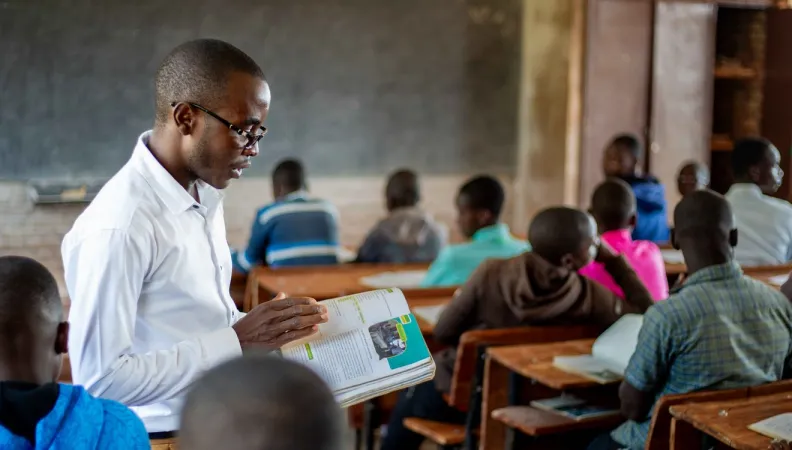Share the page
Basic education: a Prerequisite for the Future
Published on

In 2024, 244 million children aged 6 to 18 years old will still not be in school, including 44% in sub-Saharan Africa and 35% in Central and South Asia. Basic education allows young people to learn new skills, to socialize and prepare for future careers. Today, the role of education could scarcely be more important as more than half of the world's population will be under 30 by the year 2050.
Quality "basic" education (i.e. primary and secondary) is an essential foundation for people's autonomy and their role in society. To ensure equitable access to this education, AFD Group supports more than 270 schooling and teacher training projects around the world, with a focus on gender equality. In 2023, as part of these projects, 760,000 students were able to attend school, including 53% girls.
[The following video is in French but the subtitles can be set to English.]
Further reading: How school canteens in Burundi can stop kids from dropping out
In Burundi, the Global Partnership for Education is co-financing the Twige Neza project with AFD, which aims to improve basic education and teacher training in areas such as science, and the French language. The Global Partnership is also providing computer equipment, a laboratory, and other equipment.
Further reading: Transforming education: AFD has solutions in its satchel
In Togo, since 2014, the Group has supported the implementation of the middle school reform. The Parec project has improved access to education and its quality, and gender parity in middle school in two regions.
